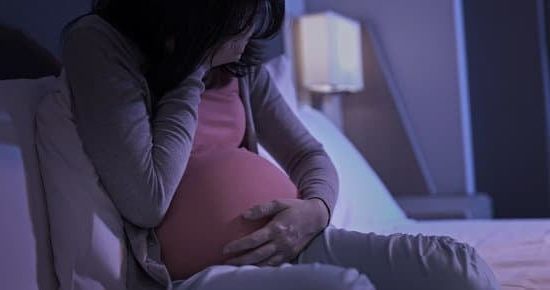Feeling pregnancy symptoms can be a surprising and exciting early indicator of a potential new addition to your family. Many women eagerly anticipate the first signs of pregnancy, wondering how soon they will start experiencing them.
Understanding the early signs of pregnancy is crucial for those trying to conceive or those who may have had an unexpected encounter. In this article, we will explore the timeline of when symptoms can first appear, the biological processes that cause these symptoms, individual differences that can impact timing, available pregnancy test options, and tips for managing early pregnancy symptoms.
The early signs of pregnancy are often the body’s way of alerting a woman to the changes taking place within her. Common symptoms include nausea, fatigue, breast tenderness, and heightened sensitivity to certain odors. For some, these signs may start as soon as a week after conception.
However, individual variation in hormone levels and other health conditions can impact when and how intensely these symptoms are felt. It is important for women to be aware of what to look out for and understand how their own bodies may respond to the hormonal changes associated with early pregnancy.
Understanding how early you can feel pregnancy symptoms involves delving into the biological processes at play during this time. The surge in hormone levels following fertilization triggers various bodily changes that lead to the well-known signs and symptoms associated with early pregnancy. Despite the variability in timing and severity from one woman to another, these physiological mechanisms provide insight into why certain symptoms manifest as they do.
What to Look Out For
Early pregnancy symptoms can vary from woman to woman, but there are some common signs that you should look out for if you suspect you may be pregnant. Some of the most typical early pregnancy symptoms include nausea, fatigue, breast tenderness, frequent urination, and heightened sense of smell. These symptoms can start as early as one week after conception.
One early sign of pregnancy is implantation bleeding, which occurs when the fertilized egg attaches to the uterine lining. This light spotting may be mistaken for a light period, but it typically occurs before your expected period and is usually lighter in flow and color. Another common symptom is morning sickness, characterized by nausea and vomiting, which can begin as early as two weeks after conception.
Women may also experience mood swings due to hormonal changes in the body. This can lead to feelings of irritability or heightened emotions. Additionally, some women report food aversions or cravings during the early stages of pregnancy. It is important to note that not all women will experience these symptoms or may experience them at different times.
It’s important to remember that every woman’s body is different and will react differently to pregnancy hormones. As such, individual variation plays a significant role in determining when and how intensely these symptoms manifest. It’s essential to pay attention to your own body and consult with a healthcare professional if you suspect you may be pregnant.
| Early Pregnancy Symptoms | Timeline |
|---|---|
| Nausea and Vomiting (Morning Sickness) | As early as two weeks after conception |
| Implantation Bleeding | One week after conception |
| Mood Swings | Varies between individuals |
How Early Can You Feel Pregnancy Symptoms
After conception, many women wonder: how early can you feel pregnancy symptoms? The answer varies from woman to woman, and it depends on a variety of factors. Generally, the earliest signs of pregnancy can start as soon as one week after conception. Some women may begin to notice changes in their body even before they miss their period.
One of the first signs of pregnancy is often fatigue and a feeling of being more tired than usual. This is due to the increased levels of progesterone in the body, which can make you feel sleepy. Another early symptom that some women experience is breast tenderness or swelling. This occurs because your body is preparing itself for breastfeeding by increasing blood flow and hormone production in the breast tissue.
Nausea and morning sickness are also common symptoms that can occur early in pregnancy. For some women, these symptoms can start as early as two weeks after conception. However, it’s important to note that not all women will experience these symptoms so early on. The timeline for when you may first feel these symptoms varies widely from person to person.
| Early Pregnancy Symptom | Timeline for Onset |
|---|---|
| Fatigue | As soon as one week after conception |
| Breast Tenderness/Swelling | Early stages, before missed period |
| Nausea/Morning Sickness | As early as two weeks after conception |
The Science Behind Early Pregnancy Symptoms
Hormonal Changes
During early pregnancy, a woman’s body undergoes significant hormonal changes. These changes are triggered by the fertilization of the egg and its implantation in the uterine lining. The hormone progesterone, which is responsible for maintaining the uterine lining to support the growing fetus, increases significantly during early pregnancy.
Additionally, levels of human chorionic gonadotropin (hCG), commonly known as the pregnancy hormone, also rise rapidly after implantation. These hormonal fluctuations can lead to a range of symptoms such as breast tenderness, fatigue, and nausea.
Implantation Process
The process of implantation itself can cause some early pregnancy symptoms. When the fertilized egg attaches to the uterine wall, it may cause mild cramping or spotting for some women. This occurs around 6-12 days after ovulation and may be one of the earliest signs of pregnancy. The body’s response to this physical change can result in symptoms such as light bleeding and cramping, similar to those experienced during menstruation.
Increased Blood Flow
As a woman becomes pregnant, her body undergoes an increase in blood volume and circulation. This increased blood flow particularly affects the pelvic area and reproductive organs. As a result, some women may experience symptoms such as pelvic pressure or bloating during early pregnancy. This physiological change is caused by the body’s preparation for supporting fetal growth and development throughout the gestation period.
Understanding these biological processes can provide insight into why early pregnancy symptoms occur and when they typically manifest. However, it is important to note that individual experiences may vary due to factors such as overall health, lifestyle choices, and genetic predispositions.
Other Factors to Consider
During the early stages of pregnancy, it’s important to acknowledge that each woman’s experience can differ due to individual differences and other health conditions. The timing and intensity of pregnancy symptoms can be influenced by a variety of factors, making it essential for women to understand how these aspects can impact their own journey. Here are some key considerations when it comes to the variability of early pregnancy symptoms:
1. Health and lifestyle: A woman’s overall health and lifestyle habits can play a significant role in how early she may notice pregnancy symptoms. Factors such as diet, exercise, stress levels, and pre-existing health conditions can all contribute to the timing and severity of symptoms.
2. Hormonal variations: Hormonal fluctuations can vary from woman to woman, which means that not everyone will experience pregnancy symptoms at the same time or with the same intensity. This can be influenced by factors such as age, reproductive history, and individual hormone levels.
3. Pre-existing conditions: Certain health conditions such as polycystic ovary syndrome (PCOS), thyroid disorders, or diabetes can impact the onset of pregnancy symptoms. Women with these conditions may notice changes differently or have unique experiences when it comes to early signs of pregnancy.
It’s important for women to recognize that their own circumstances and health profiles are unique, and therefore may influence the timeline for experiencing typical signs of pregnancy such as nausea, fatigue, breast tenderness, and changes in appetite or mood.
For those who are actively trying to conceive or suspect they may be pregnant, it is important to be mindful of these individual differences when monitoring their own potential symptoms. Additionally, seeking guidance from a healthcare professional is crucial for understanding how personal health factors could affect the timing and recognition of early pregnancy signs. Ultimately, recognizing these variables will help individuals navigate this exciting yet uncertain time with more knowledge and insight into what they might expect.
Early Pregnancy Test Options
When it comes to confirming a suspected pregnancy, there are several different types of pregnancy tests available on the market. These tests range from urine tests that can be done at home to blood tests that are performed in a medical setting. Understanding the differences between these tests and when they can accurately detect pregnancy is important for individuals who suspect they may be pregnant.
Home Pregnancy Tests
Home pregnancy tests are the most commonly used method for determining pregnancy. These tests detect the presence of human chorionic gonadotropin (hCG) in urine, which is a hormone produced during pregnancy. Most home pregnancy tests claim to be able to detect hCG levels as early as 7-10 days after conception, although the accuracy of these early results can vary.
Blood Tests
A blood test for pregnancy, also known as a beta hCG test, is considered to be more accurate than a urine test and can detect lower levels of hCG. There are two types of blood tests: quantitative and qualitative. A quantitative blood test measures the exact amount of hCG in the bloodstream, while a qualitative blood test simply detects whether or not hCG is present.
Timing of Testing
The timing of when you can accurately detect pregnancy symptoms also depends on the type of test being used. In general, it’s recommended to wait until your first missed period before taking a home pregnancy test for the most accurate results. Blood tests can typically detect pregnancy earlier than urine tests, with some being able to provide accurate results as early as 7-12 days after conception.
Understanding the available options for early pregnancy testing and when they can accurately detect pregnancy symptoms is crucial for individuals who suspect they may be pregnant. It’s important to consider individual factors such as menstrual cycle regularity and potential fertility issues when deciding when to take a test. If there is uncertainty or concern about early pregnancy symptoms, it’s always best to consult with a healthcare professional for guidance and support.
Managing Early Pregnancy Symptoms
Experiencing early pregnancy symptoms can be a challenging and uncomfortable time for many women. The changes happening in your body can bring about unknown sensations and uncertainty, but there are ways to manage these symptoms effectively. Here are some tips for coping with the discomfort and uncertainty:
- Listen to Your Body: Pay attention to what your body needs and prioritize rest when you feel tired. Taking naps throughout the day and getting plenty of sleep at night can help alleviate fatigue.
- Eat Well: Consuming a balanced diet that includes plenty of fruits, vegetables, lean proteins, and whole grains can help combat nausea and boost overall energy levels.
- Stay Hydrated: Drinking plenty of water is essential during pregnancy. Dehydration can exacerbate symptoms like headaches, dizziness, and constipation.
It’s important to remember that every woman experiences pregnancy symptoms differently, so finding what works best for you might take some trial and error. You may also find comfort in seeking support from loved ones or joining online communities where you can connect with other expecting mothers who may be experiencing similar symptoms.
While it’s normal to feel uncertain or anxious during this time, try to maintain open communication with your healthcare provider if any symptoms become overwhelming or concerning. Seeking medical guidance will ensure you receive the best care for both you and your growing baby.
Conclusion
In conclusion, understanding the early signs of pregnancy is crucial for women who are trying to conceive or suspect that they may be pregnant. From missed periods and breast tenderness to nausea and fatigue, there are various common symptoms that can indicate the start of pregnancy.
However, it’s important to recognize that individual differences and other health conditions can impact the timing of these symptoms. This is why consulting with a medical professional is essential for accurate guidance and support during the early stages of pregnancy.
Exploring the timeline of when pregnancy symptoms can first appear, it is known that some women may experience signs as early as a week after conception. The biological processes behind these symptoms involve hormonal changes in the body, such as an increase in estrogen and progesterone levels. These changes can lead to physical and emotional discomfort for many women, which can make managing early pregnancy symptoms quite challenging.
When it comes to managing early pregnancy symptoms, seeking medical guidance and support becomes crucial. Whether it’s through regular prenatal care visits or consulting a healthcare provider about coping strategies, having access to reliable medical support can significantly ease the uncertainty and discomfort associated with early pregnancy. Ultimately, by emphasizing the importance of seeking professional medical guidance and support during this crucial period, women can ensure their own well-being as well as that of their developing baby.
Frequently Asked Questions
What Symptoms Do You Have at 1 Week Pregnant?
At 1 week pregnant, most women do not yet experience any symptoms. This is because conception typically occurs around two weeks after the start of your last menstrual period. Therefore, signs of pregnancy may not be noticeable until later on.
What’s the Earliest Pregnancy Symptoms Can Show?
The earliest pregnancy symptoms can manifest as early as one to two weeks after conception. These early signs can include implantation bleeding, cramping, breast tenderness, and nausea. However, it’s important to note that every woman’s experience with early pregnancy symptoms can vary.
How Quickly Do I Know if I’m Pregnant?
You can know if you’re pregnant as soon as a few days after you’ve missed your period by taking a home pregnancy test. Additionally, some women may notice other signs like fatigue, frequent urination, and heightened sense of smell before they even miss their period.
However, the most reliable way to confirm pregnancy is through a medical test administered by a healthcare professional.

Welcome to my fertility blog. This is a space where I will be sharing my experiences as I navigate through the world of fertility treatments, as well as provide information and resources about fertility and pregnancy.





